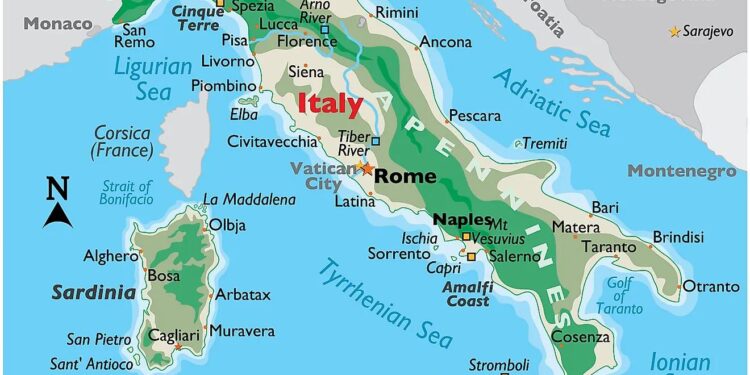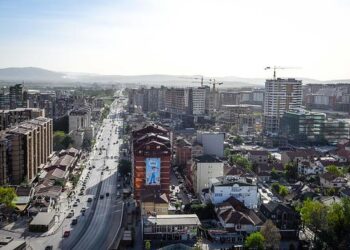Italy Reaffirms Strong Commitment to KosovoŌĆÖs EU and NATO Integration Goals
During a recent diplomatic engagement in Pristina, Ambassador Nicola Antonini emphasized ItalyŌĆÖs unwavering support for KosovoŌĆÖs aspirations to join the European Union and NATO. Highlighting the significance of Kosovo’s integration into European and transatlantic frameworks as a catalyst for regional stability and economic development, Antonini reaffirmed ItalyŌĆÖs dedication amid ongoing international discussions regarding Kosovo’s status. As a key advocate for peace and collaboration in the Balkans, ItalyŌĆÖs endorsement is expected to play a pivotal role in advancing Kosovo toward its strategic ambitions. This article explores the broader consequences of Ambassador Antonini’s remarks, shedding light on their influence over Kosovo’s future path and its relations with neighboring countries.
ItalyŌĆÖs Endorsement of KosovoŌĆÖs EU Membership and NATO Aspirations
Ambassador Antonini reiterated Italy’s steadfast backing of Kosovo as it strives for accession to both the European Union and NATO. Addressing an influential forum, he underscored that cooperative efforts are vital to bolstering political stability and fostering economic resilience within Kosovo. He portrayed Italy not only as a committed Balkan ally but also as an active promoter of inclusive regional cooperation initiatives. This approach aligns seamlessly with ItalyŌĆÖs broader foreign policy objectives aimed at stabilizing Southeast Europe while nurturing democratic institutions.
To expedite this integration process, several strategic measures have been proposed:
- Strengthened Institutional Engagement: Enhancing dialogue channels between Kosovan authorities and EU bodies to facilitate smoother accession procedures.
- Economic Revitalization: Encouraging investments particularly in renewable energy projects and digital infrastructure upgrades that underpin sustainable development.
- Security Cooperation: Expanding partnerships with NATO allies to reinforce defense capabilities across Western Balkan states.
Italy’s proactive involvement reflects wider international endeavors focused on ensuring that Kosovo fulfills membership criteria without jeopardizing regional security or harmony. The ambassadorŌĆÖs statements signal enduring Italian commitment likely translating into heightened diplomatic advocacy during this critical phase.
Overcoming Challenges While Unlocking Potential on KosovoŌĆÖs Path Toward EU Accession
Kosovo confronts several significant challenges on its journey toward meeting the Copenhagen criteria necessary for EU membership. Political fragmentation remains one of the foremost concerns; internal divisions combined with growing populist tendencies threaten effective governance cohesion. Judicial reform is another urgent priorityŌĆöstrengthening legal frameworks is crucial not only for combating corruption but also restoring public trust in state institutions. Additionally, normalizing relations with Serbia continues to be an essential yet sensitive prerequisite requiring persistent diplomatic efforts.
Despite these obstacles, promising avenues exist that could accelerate progress:
- Infrastructure Enhancement: Targeted investments in transportation networks alongside green energy initiatives can generate employment opportunities while improving regional connectivity.
- Sustained EU Support: The European Union remains committed through funding mechanisms such as IPA (Instrument for Pre-Accession Assistance), specifically designed to aid Western Balkan nationsŌĆÖ reforms.
- Youth Engagement: With approximately 55% of Kosovars under 30 years old according to 2023 UN statistics, empowering young people via education reforms can stimulate innovation-led growth across sectors.
| Main Obstacles | Pivotal Opportunities |
|---|---|
| Lack of Political Unity | Sustainable Growth Through Infrastructure Investment |
| Court System Reform Required | Robust Backing from European Institutions |
Expanding Bilateral Ties: Opportunities for Enhanced Collaboration Between Italy and Kosovo
The relationship between Rome and Pristina holds considerable potential for growth through focused strategies emphasizing shared priorities across diverse sectors. A central objective involves strengthening economic cooperation by promoting joint ventures especially within emerging industries like clean technology startups or smart city innovationsŌĆöfields where both countries stand to gain from mutual expertise exchange.
Cultural diplomacy presents additional fertile ground; programs involving artistic collaborations, academic exchanges, or joint heritage conservation projects can foster deeper understanding beyond official channelsŌĆöbuilding bridges among civil societies.
To effectively coordinate these initiatives, establishing a dedicated bilateral task force could prove invaluable by managing trade facilitation efforts, aligning security dialogues consistent with NATO standards, alongside organizing cultural events aimed at enhancing people-to-people connections.
| Area of Cooperation | Anticipated Benefits |
|---|---|
















